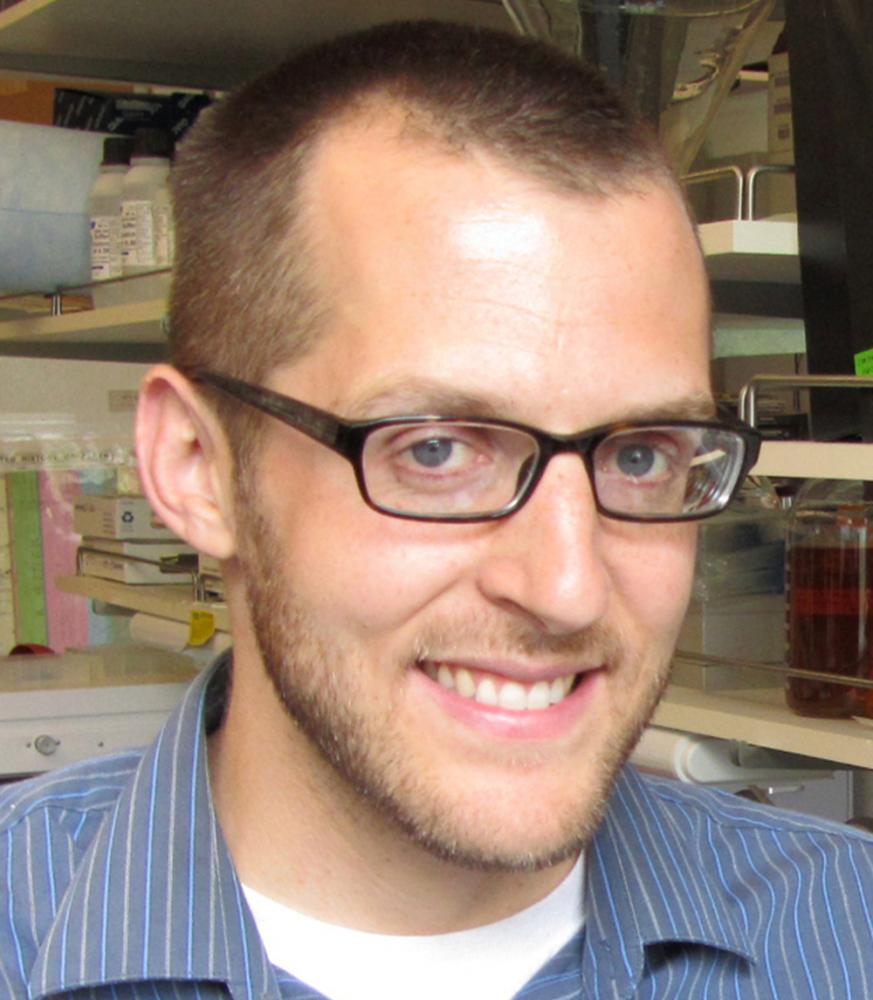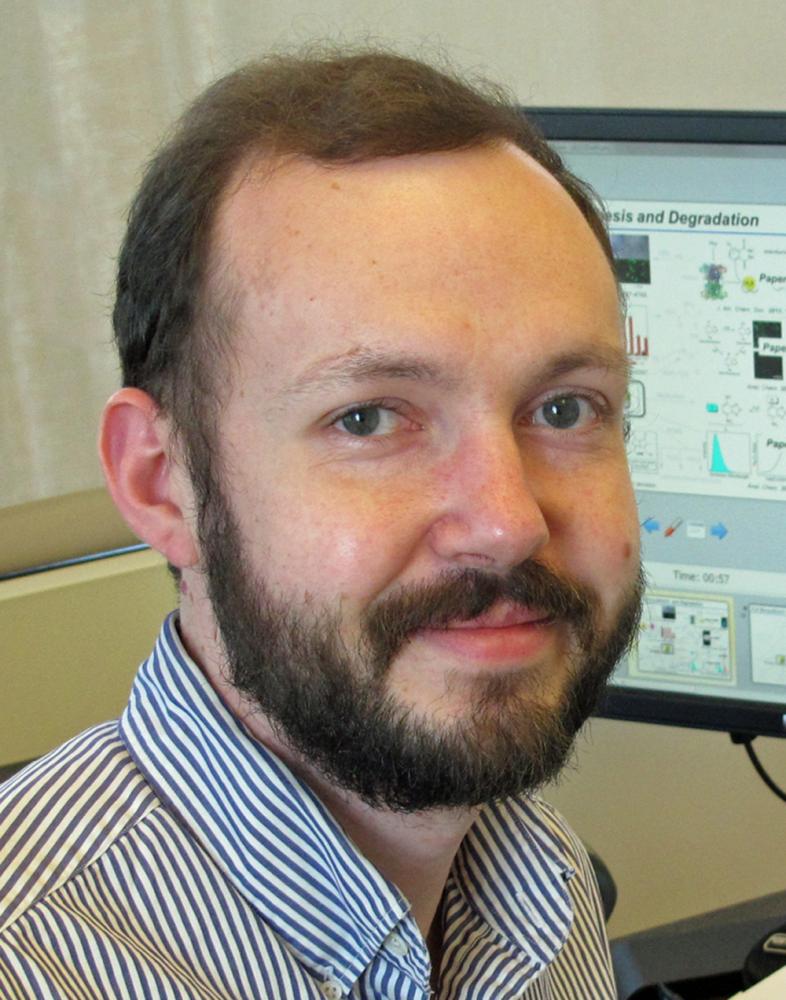Three UO scientists — Shannon Boettcher, Michael Harms and Michael Pluth — are among 126 U.S. and Canadian researchers from 57 institutions to win 2015 Sloan Research Fellowships from the Alfred P. Sloan Foundation.
The three faculty members, all assistant professors in the Department of Chemistry and Biochemistry, bring the total of UO researchers chosen as Sloan fellows to 32 since the awards began in 1955. The fellowships, which provide $50,000 over two years, honor early-career scientists and scholars whose achievements and potential identify them as rising stars in their fields.
“Having three of our junior faculty members — Pluth, Harms and Boettcher — simultaneously named Sloan Fellows is a clear indication that our department is on a rapidly ascending trajectory," said Andrew H. Marcus, head of the UO's Department of Chemistry and Biochemistry. "It's a privilege to be associated with this hard-working and talented group."
 The official announcement, the list of 2015 winners and the historical archive of fellows since the program began are available on the Sloan Foundation website.
The official announcement, the list of 2015 winners and the historical archive of fellows since the program began are available on the Sloan Foundation website.
Boettcher studies the fundamental chemistry and physics of energy conversion and storage processes. His goal is to provide a basic-science framework for technologies that could replace fossil fuels with renewable, sustainable and carbon-free energy sources.
He is developing new methods to grow semiconductors for use in solar cells by focusing on how semiconductors can be combined with catalysts to directly convert the energy in sunlight into a chemical fuel, hydrogen gas, using only water. His work involves the study of mechanisms of chemical reactions on the surfaces of nanoscale materials.
Boettcher also is a researcher in the Oregon Nanoscience and Microtechnologies Institute, a state signature research organization, and is an affiliate in the UO's Material Sciences Institute. He holds a bachelor's degree from the UO and a doctorate from the University of California at Santa Barbara.
Harms, who joined the UO faculty in 2013 after doing postdoctoral work at the UO, is interested in the relationship between the biophysical properties of proteins and their evolution. His research uses a synthetic approach, combining concepts and methodologies from classical biophysics and evolutionary biology.
He focuses on the genetic past of proteins using advanced experimental screening in combination with experimental and computational biophysical approaches to study evolutionary and biophysical forces involved in generating the complexity and diversity of natural proteins.
 Harms, who is affiliated with the UO's Institute of Molecular Biology, holds a bachelor's degree from Oregon State University and a doctorate from Johns Hopkins University.
Harms, who is affiliated with the UO's Institute of Molecular Biology, holds a bachelor's degree from Oregon State University and a doctorate from Johns Hopkins University.
For Pluth, an assistant professor, the fellowship will help his lab pursue new areas in inquiry that focus on using chemistry as a tool to understand the multifaceted biological roles of hydrogen sulfide. Historically recognized as a toxic gas, hydrogen sulfide is now accepted as an important signaling molecule produced by almost all living organisms and thought to play important roles in health issues such as diabetes, hypertension, inflammation and neurodegeneration.
Pluth is working to develop biocompatible chemical tools for researchers to probe, image and quantify cellular-level hydrogen sulfide generation how it could be delivered to specific cellular locations.
Pluth is affiliated with the UO's Institute of Molecular Biology and Materials Science Institute. He holds a bachelor's degree from the UO and a doctorate from the University of California, Berkeley.
Previous Sloan fellows have gone on to win major honors: 43 have won Nobel Prizes, 16 have won the Fields Medal in mathematics, 65 have won the National Medal of Science and 14 have won the John Bates Clark Medal in economics.
—By Jim Barlow, Public Affairs Communications

